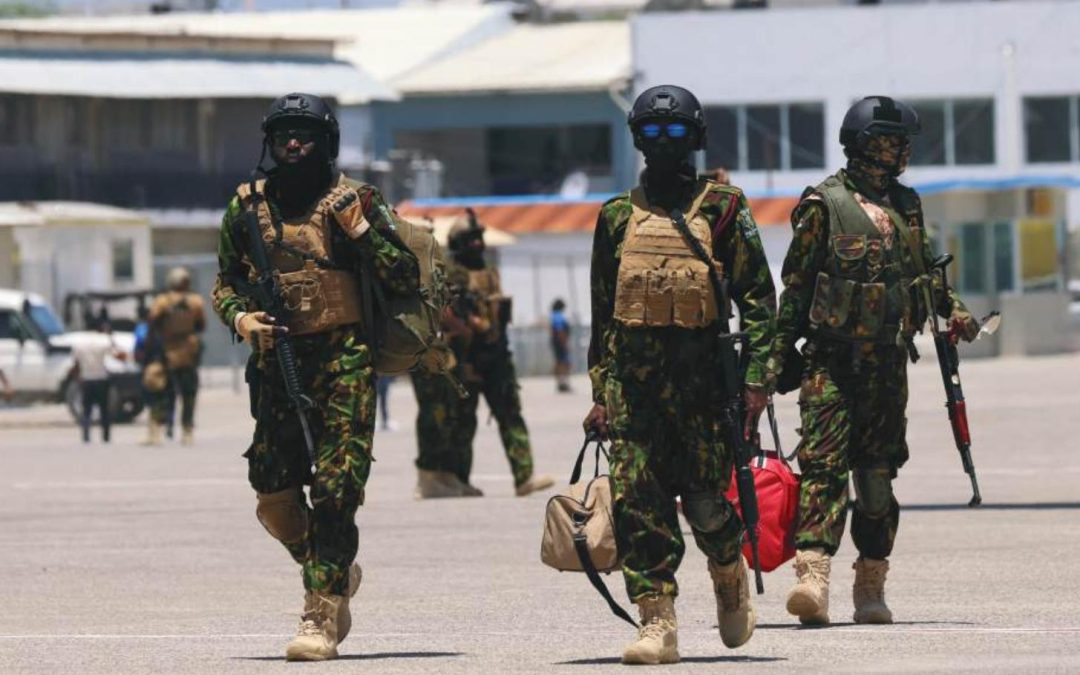Over the couple of months, Haiti has dominated local and global news for insecurity reasons. The insecurity and other related challenges have increased especially after the assassination of country’s president Jovenel Moïse on 7th July 2021. Heavily armed gangs and militias are controlling most of the country; controlling 80% of capital Port Prince. The national police force is overwhelm thus failing to bring sanity into country. Insecurity in the country keep on increasing year by year for example according to UN Report that was released in January 2024 the number of reported homicides for 2023 increased by 119.4 per cent compared with 2022. 4,789 people were reported to have been killed during 2023, against 2,183 in 2022. The report also noted that the number of victims of kidnapping rose from 1,359 reported in 2022 to 2,490 in 2023, representing an 83 per cent increase. the insecurity has demoralised police, who sometimes protest some opting to leave the force for instance the report said a total of 1,663 officers were recorded to have left the service. The demoralisation is partly attributed to death and the injuries that the police continue to endure for example 48 of them were killed while 75 were injured in 2023. The number of police officers is about 13,196 in a population of 12 million.
It is based on this that on 7th October 2022 Haiti government ostensibly approached The UN Security Council for the urgent deployment of the Multinational Security Support (MSS) to help restore security and alleviate the humanitarian crisis. On 8 October 2022, Secretary-General António
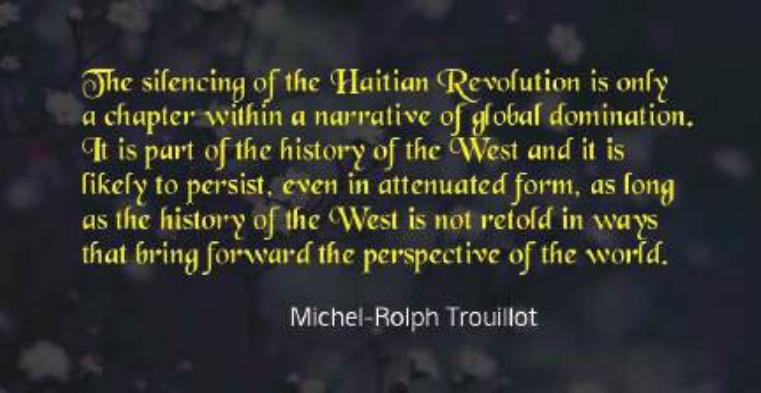
Guterres without waste of time submitted to the Security Council a special report (S/2022/747) outlining options to enhance security support for Haiti, requested by resolution 2645 of 15 July 2022 renewing BINUH’s (United Nations Integrated Office in Haiti) mandate. On 29 July 2023, Kenya government agreed to lead a multinational force to Haiti by pledging to deploy 1,000 police officers to what it said was to help in training and assisting Haitian police bring normalcy in Haiti. It is believed the US imperialism, which has dominated Haiti since 1915 is a key player behind the scene though is hiding itself by using Kenya as its protégé. This is authenticated by the fact that the US has pledged to facilitate the deployment of the MSS by pledging $300 and also the discussion Kenya president William Ruto had with US Secretary of State Antony Blinken in which he promised Blinken of Kenya taking leadership of MSS. On 2nd October 2023 the UN Security Council authorized the deployment of a MSS mission to support the Haitian National Police in combating the violence unleashed by gangs. The authorization excited the Kenya government which seemed to be more interested on the money it was going to get than the safety of its officers. The government through its Foreign Affairs Principal Secretary Korir Sing’oei vowed to seek parliamentary approval for deployment of its police officers to Haiti. The government knew too well that such kind of approval could easily sail through due to the fact it controls of parliament.
It is upon UN Security Council authorization and government determination of sending its police that Ekuru Aukot a lawyer and a politician rushed to court to challenge the deployment arguing that the deployment was unconstitutional as it was not backed by any Kenya law. He was granted an interim injunction (temporary order) on 9th October 2023 restraining the government from deploying police officers to Haiti or any other country until 24 October 2023 when the ruling was to be made. The temporary order was extended to 9th November 2023 and again to 26th January 2024. On 16th November 2023 the parliament as expected approved the deployment after adopting a parliamentary joint committee report that recommended the same. The adoption was however opposed by some opposition Members of Parliament (MPs). The Kenya comprador government disregarded the court rulings and dispatched the initial group of police on 25th June 2024. The interests of the imperialists take precedence over the people under the comprador government. It hypocritically espouses sovereignty to its citizens while secretly receiving instructions from its imperialist sponsors. For this not to be seen as empty rhetoric, it might be helpful to briefly explore Haiti’s brief history so that we can fully grasp the extent to which imperialism, especially from the US, has devastated the country.
Brief Haiti Historical Background
Before invasion by foreigners, Haiti belonged to a group of people called Taíno, meaning ‘men of the good’. Arriving from Spain, Christopher Columbus was the first foreigner to set foot on the island. It is frequently claimed that Columbus ‘discovered’ the island in 1492, indicating that the indigenous Taínos he encountered were not human beings. Columbus invited Spanish colonial settlers to exploit Haiti’s wealth, particularly gold, enslaving Taínos within their own land. The Spanish colonialists proceeded to brutally exterminate the entire Taíno population, many thousands fell prey to smallpox, measles and other European diseases for which they had no immunity creating a shortage of human labour. Thus, in 1503 the colonialists brought black people (African) to work in Haiti’s mines. When the French arrived in Haiti in 1625, conflict arose between them and the Spaniards over Haiti’s wealth. The fight ended in the signing of the Ryswick Treaty in 1697. The treaty gave France control over Haiti, which was known as Saint-Domingue at the time. To exploit Haiti’s wealth, France embarked on a mass importation of slaves from Africa. The slaves were forced to work under extreme conditions to produce wealth, which solely benefited the slave masters.
Black slaves did not sit around waiting for the messiah to save them or hoping to get sympathy from the slave masters, rather they demonstrated resistance in various ways. For example, some took to the mountains where they attacked and killed slave masters. This rebellion culminated in the rise of an inspirational leader called Toussaint L’Ouverture. L’Ouverture organised an army of slaves which terrorised French exploiters. Because of his leadership, slaves believed in themselves and were able to fight with determination.
To end the resistance, the French tricked L’Ouverture into agreeing a deal and subsequently arrested him in 1802. He was taken to prison in France, where he died of pneumonia. Haiti’s slave population did not despair; they continued with the fight.
By 1 January 1804, Haiti became the first black country, and the second in the world – after the United States – to regain independence, under the leadership of Jean-Jacques Dessalines, who had taken over from Toussaint L’Ouverture. Upon taking over, Dessalines under the banner “Liberty or Death” ordered the killing of Frenchmen who remained in Haiti sparing Polish and German colonists. He justified his actions as necessary to protect Haiti’s sovereignty as well as acts of retaliation for the years of white cruelty and savagery during French rule.
This action angered the imperialists, particularly the US and Western Europe, who refused to recognise this newly government. They viewed Haiti as a challenge to their system and were worried about the response this independent Black nation would receive from slaves in their own countries and other colonies. So they tried to do everything they could to weaken the country.
Haiti assisted, and expressed solidarity with Latin American countries struggling for freedom. The great Latin American liberator, Simon Bolívar was once granted asylum in Haiti. France was irritated by their defeat to Haiti revolutionaries and kept playing all tricks to win back their loots by reinstating slavery. France was also envious of the US due to the fact it was enriching itself through slavery particularly on the South part of the country. It because of these reasons that France on July 3, 1825, sent its diplomat Baron de Mackau to Haiti to demand 150 million francs as compensation or face invasion. The French argued that they deserved restitution for destroyed wealth and commercial ventures. By their accounting, the value of the five hundred thousand humans who worked the hundreds of cotton, coffee, and sugar plantations rounded to approximately 150 million francs. President Jean-Pierre Boyer, who by then was in leadership chickened out and surrendered to France’s demand of 150 million francs (ten times of Haiti annual income) by signing a dubious document. This capitulation led to Haiti’s dependence on France and it took Haitians more than a century to pay off the debt to France. The fake compensation regressed the economic growth of Haiti as most of its wealth was channeled towards the payment of the debt. President Boyer did like other comprador leaders do when they face liquid challenge by imposing taxes upon his people. Since country could not meet debt obligation it was forced to reach out to France, Germany and US banks for loans to pay France government. The dubious compensation which had been reduced to 90 million francs was fully paid in 1888. this however did not leave off the hook as it continued to pay the banks that had loaned it until 1947. President Boyer was eventually overthrown in 1843 by masses for his ineptitude and corruption; he escaped to Jamaica then to France.
Between 1911 and 1914 Haiti faced a crisis where presidents were overthrown as well as assassinated. The US used its influence in assisting Jean Vibrun Guillaume Sam to become the president. During the leadership of Jean Vibrun Guillaume Sam in 1915, 3,000 US marines invaded Haiti on 28th July 1915 and occupied the country for 19 years, ostensibly because Vibrun had killed 167 political prisoners and therefore there was need to protect US investment in the country. The US took control of financial institutions and the national treasury. In the budget more funds were allocated to paying salaries and expenses of American officials at the expense of basic needs of two million Haitis. Thereafter, the US ruled Haiti through proxies, and even forced the Haiti deputies to amend an article in Haiti’s constitution banning foreigners from owning Haitian land in 1917.
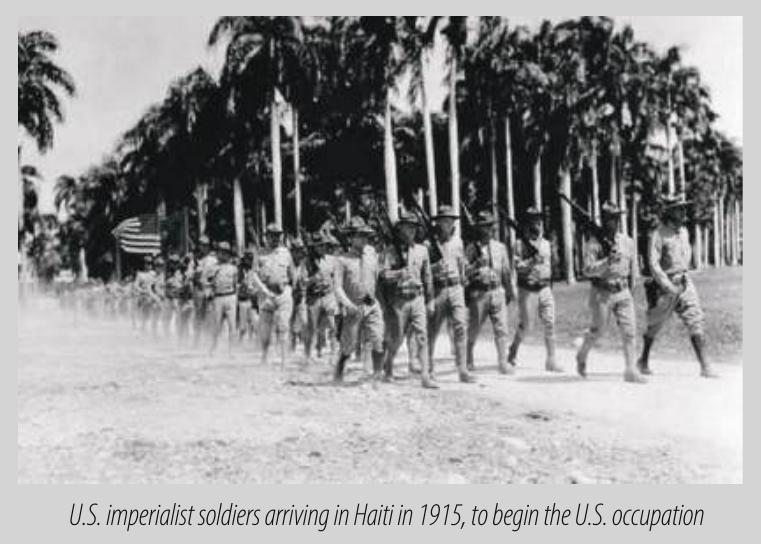
When the said deputies refused to ratify the constitution US officials rewrote the constitution, and the said officials dissolved the assembly then held a “referendum” in which about 5 percent of the electorate voted and approved the new constitution–which conveniently changed Haitian law to allow foreigners to own land–with 99.9 percent voting for approval. In actual sense the aim of the US invasion was to steal wealth of the country for the benefits of US corporations.
The US was also wary of Germans who had integrated with Haitians through intermarry and also their economic influence. Concerned about being outdone by the Germans, the US used their proxies in the Haitian government to deport Germans and seize their assets. This led to the US assuming sole control of the country and thus exploiting the people of Haiti, akin to slavery. About 50,000 peasants were deprived of their land as the US seized at least 260,000 acres for its corporations. US control of the country made 40% of Haiti’s GDP to be channeled to US banks. The Haitians revolutionaries like their forefathers organized themselves and resisted the invasion courageously. Thousands of them majority being peasants were tortured and killed. The killings attracted world attention forcing the US to end occupation in 1934, however it made sure that the Haitian army (FAdH) as well as leadership that was left served its interests. After the US left the country in 1934, there followed several leaders, with the election of François Duvalier alias Papa Doc in 1957 garnering the most attention due to the president’s infamous anti-people policies. Prior to his presidency, Duvalier excelled in articulating issues affecting common people. Another thing that need to be noted is that since independence 1804 a small section mulatto (biracial) bourgeosis dominated politic and economy of the country over the majority blacks. No wonder Duvalier rhetoric was able to attract many people. Being a US puppets Duvalier came up with private militia called Tonton Macoutes which was trained by the US that as we mentioned killed his perceived opponents. So the emergence of criminal gangs is not a recent thing but it can be traced during the reign of Duvalier. In 1963, he entrenched himself as the future of Haiti’s leadership by changing the constitution to ensure he maintained his presidential position for life. He outlawed socialist parties and crushed any leftist groups. A significant number of members from the underground United Party of Haitian Communists (PUCH) were subjected to torture, imprisonment and murder. He died in 1971, and his son Jean-Claude Duvalier, whom he had designated as his heir, was made president at the age of 19.
The younger Duvalier like his father continued with violent repression all those who rose up against him. According to Amnesty International report his government tortured and killed political leaders, journalists, trade unionists and those suspected of being opponents of the government. Detainees were kept incommunicado for long periods of time and were frequently subjected to torture and ill-treatment. It is during his tenure that the leadership of United Party of Haitian Communists (PUCH) left the country in an effort to escape the wrath of regime and sought asylum in France. More than 100,000 people were estimated to have been killed under his and his father’s regime. His authoritative leadership caused dissatisfaction among many, resulting in a desire to depose the Duvalier dynasty.
Under the leadership of a Catholic priest called Jean-Bertrand Aristide, peasants, urban workers and members of the petty bourgeoisie took to the street demanding Duvalier’s resignation. Aristide was the leader of the Fanmi Lavalas, a movement which played a crucial role in the uprising. On 7 February 1986, Jean-Claude Duvalier gave in to mounting pressure marking the end of the hated dynasty. The U.S. imperialists who were his main backer in committing atrocities against his people came to his rescue and took him to France for a peaceful and lavish life.
From 1986 to 1990, Haiti was ruled by provisional governments and military who were friends to Duvalier government. These governments continued commit human rights abuses particularly to those questioning them. It is during this period that the constitution was amended. In the first election under the new constitution held on 16th Decemberv1990, Aristide emerged the victor with 67 per cent of the votes cast. This election was perceived as the first free and fair election in the history of Haiti. The US was uncomfortable with Aristide because of his combination of liberation theology and anti-capitalist rhetoric, thus the American government chose to support Aristide’s opponent, a former World Bank official, Marc Bazin.
The imperialists tried their best to trash the wishes of Haiti people for example on 16th January 1991 their stogy and leader of Macoute called Roger Lafontant tried to overthrow Aristide. This however did not happen as this illegal move was thwarted by his supporters who took to the street in protest. The elections did not change the state structures as Aristide inherited the oppressive army which continued to harass ordinary people. in an effort to bring sanity he instituted series of reforms among them forcing army commander-in-chief Herard Abraham to resign, trying to combat drug dealing, starting investigations of the people who had committed atrocities in previous regimes. These reforms did not sit well with imperialists and their agencies (bourgeoisis) who had benefited from country’s loots. It based on this that that US hatched a move aimed to destabilize his government. The destabilisation led to Aristide’s overthrow in September 1991 in which the US secretly backed a military coup. General Raoul Cedras, named chief of general staff of Haiti’s army by Aristide, did exactly what Joseph Mobutu had done to the Congolese leader Patrice Lumumba in the early 1960s, cooperating with the US to overthrow the country’s leader. Poor people did not take this lightly and poured into the streets to protest. Their protests were mercilessly crushed by the military regime. It is estimated that under his military reign approximately 7,000 people were killed. To curb resistance, the military government facilitated the formation of FRAPH (Revolutionary Front for the Advancement and Progress of Haiti) Emmanuel “Toto” Constant was the founder and leader. FRAPH was responsible for most of dirty work required to keep the first coup-regime in place, and the organization received thousands of military-style weapons from US authorities in Miami, often via Michel Francois’ brother Evans, in flagrant violation of a (notoriously selective) “embargo” against the coup-regime. Because of the oppression and economic hardship that followed, many people fled to the US using motor boats. Most of them were deported back to Haiti.
The US government continued working with notorious military government for three years. But in order to deceive masses that it was concerned about the suffering of the suffering Haitian. It ostensibly started to pressure the military government to step down so that the elected president Aristide could take over the leadership of the country. It influenced the United Nations Security Council to back the removal of the military regime. To accomplish it deceptive move it invaded and occupied Haiti on 19th September 1994. The US now in control restored Aristide in power in October, it however as usual set conditions which the Aristide government had to honour. These conditions included complying with IMF and World Bank conditionalities, co-opting former officials of the Duvalier dictatorship and accepting to complete the term without asserting any rights to the years of his presidency that were lost during forced exile and not seeking re-election in the 1996 general elections. Acceptance of these conditions made Aristide unpopular among his supporters, since his compliance affected them negatively. He however made a bold move in which he disbanded army ignoring US advise of retaining army of 4,000 soldiers that was to led by some the former commanders. The US did not take much bother since it knew very well its 3,000 marines were in command. The US handed the army mandate to the United Nations Mission in Haiti in March 1995. When Aristide’s term culminated in 1996, he persuaded his friend, Rene Preval, to run for president under the Lavalas party. The election saw Preval win with 88% of the votes, allowing him to continue Aristide’s reforms.
Due to party differences there was a split between the two friends, which led to Aristide forming a breakaway movement called Lavalas Family. When the next election was held in 2000 and was boycotted by the opposition, Aristide emerged triumphantly with 90 per cent of votes. After Aristide’s 2001 inauguration, the Bush administration stepped up a coordinated campaign of political isolation, economic sanctions, diplomatic pressure, and paramilitary guerrilla attacks to drive him from power. This was done under the banner the Democratic Convergence coalition and Group 184.
To counter the Democratic Convergence coalition and Group 184 formed by the US and Haitian ruling classes to destabilise him, Aristide relied on in his Chimères security force, comprised of lumpenproletariat, namely, the impoverished from Haiti’s slums. This force attacked Aristide’s opponents, who in turn formed similar forces to counterattack. Knowing that they could not beat Aristide in a fair election, his opponents formulated excuses, suggesting that the 2000 elections were irregular. Aristide’s opponents were fully supported by the US and other imperialists countries, who suspended foreign aid to the Aristide government as a symbol of protest around ostensibly unfair elections. The suspension of aid was meant to turn Haitians against Aristide.
By February things had turned from bad to worse; the US together with other imperialist countries such as France capitalised on this downturn, and facilitated another coup which involved abducting Aristide and his family then flying them to the Central African Republic (CAR). The US insisted that they were helping Aristide since he had resigned. But all these obnoxious excuses were debunked when Thierry Burkhard, France’s former ambassador to Haiti, revealed to The New York Times that France and the United States effectively orchestrated the coup. He stated that the main reason for that was Aristide’s campaign demand for France to pay Haiti over 21 billion U.S. dollars, which he claimed was the equivalent of 90 million gold francs that Haiti was compelled to pay Paris after achieving independence. Jean-Bertrand Aristide was granted political asylum in South Africa, where he remained until his return to Haiti in 2011. The chief justice of the Supreme Court, Boniface Alexandre, took over the government in accordance with Haiti’s constitution, and invited UN peacekeepers to participate in the governance of Haiti.
Supporters of Aristide took to the streets to demand his reinstatement, but were confronted by the peacekeeping force. This confrontation continued for several years, costing many injuries and deaths. According to WikiLeaks Cables high-level U.S. and U.N. officials coordinated a politically motivated prosecution of Aristide to poison the minds of innocent Haitians and the world. This persecution included labeling Aristide as a drug trafficker, human rights violator, and heretical practitioner of voodoo. The aim was to prevent him from going back to his country during his exile in South Africa.
The interim government finally held elections on February 2006; Preval won with 51 per cent of the vote, albeit amidst allegations that he had not in fact gathered the 50 per cent needed for one to be declared president. Preval used opportunistic tactics to win both left and right global leaders. He worked well with Cuban and Venezuelan governments. He even signed development agreement with Hugo Chavez and consistently voted against US embargo against Cuba in United Nation General Assembly. On the other side he was dining with US imperialism by embracing neoliberal policies geared to satisfying imperialists interests at the expense ordinary people. In the last years of his second term an earthquake strike Haiti killing more than two hundred thousand people and destroying Port-au-Prince. His responses to the disaster was wanting and it believed that this was one of the reasons that made him not to contest the 2010 elections as he feared defeat.
The imperialists continued to play behind the scenes and doing their best to groom Duvalierist elements. It is on this basis that they supported and financed Michel Martelly during 2011 general elections. Actually he was funded by the same groups which drove Aristide from power in 2004 to tune of $15billion. Martelly was member of Macoutes which was accused killing and torturing people during Duvalier regimes. When the first round of elections was held Martely became distanced third behind Mirlande Manigat and Jude Celestin but surprisingly Organisation of American States (OAS) selected him instead of Jude Celestin to contest for the runoff ostensibly because of elections irregularities.
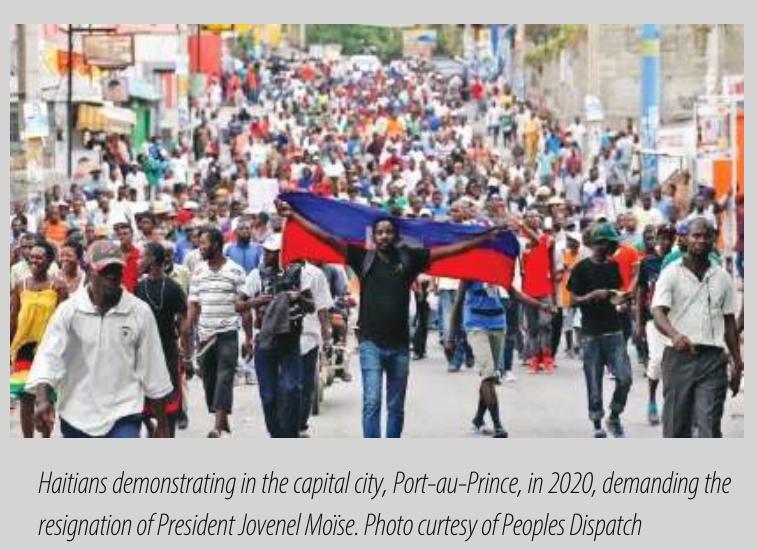
The same script played around during 2016 general elections in which Martelly party Haitian Tèt Kale Party (PHTK) nominated Jovenel Moïse as its presidential candidates of November 2016 general elections. When elections were held Moise fraudulently emerged winner with turnout of less than 12%. his elections were protested by Haitians who poured in the streets in fury. When he consolidated power he re-established army which had been disbanded by Aristide in 1995 naming former army colonel Jodel Lesage as acting commander-in-chief.
He ruled with iron fist Since he knew he got to power illegitimately refusing to call elections and instead pushing elections to the following year (2022). This illegality was however supported by imperialists led by United States along
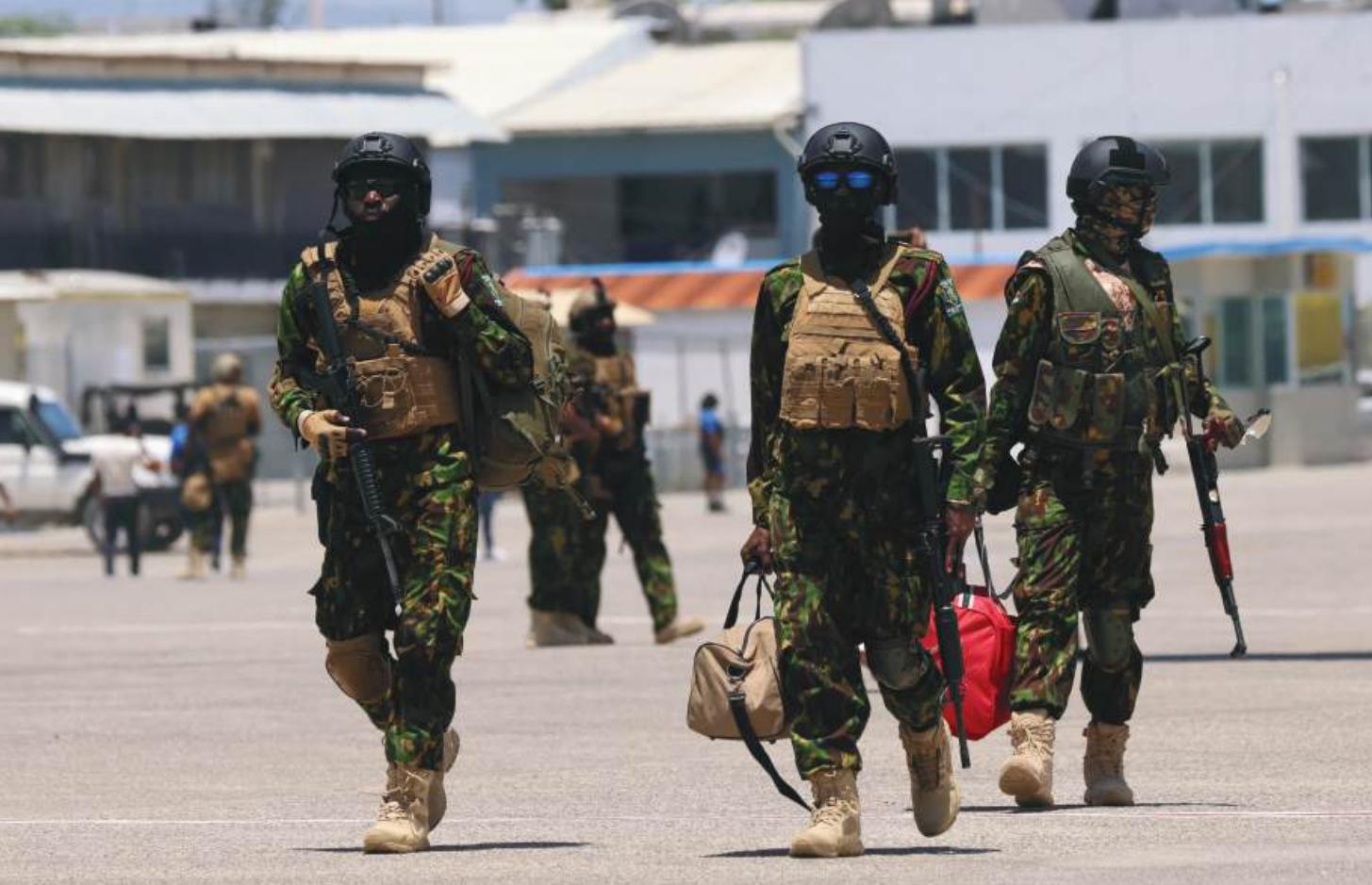
with other Caribbean countries. His refusal attracted wrath of Haitians who protested along the streets targeting US embassy demanding his resignation. On 7th July 2021 the gun men stormed into his bedroom after overpowering security and shot him dead injuring his wife. Claude Joseph the prime minister by then took over the government though in interim basis. This however did not please imperialist under the banner of Core Group who demanded his resignation. The said imperialist under the stewardship of USA without caring about the wishes of Haitians imposed their stooge Ariel Henry as prime minister on 20th July 2021.
Imposition of Ariel did not mitigate the challenges the country rather it increased them. The gangs whose majority are bank rolled by the oligarchy politicians and bourgeois class took control of the country. Ariel like his predecessors did not meet the needs of majority Haitians but those of the imperialists. He even failed to hold elections ostensibly because of insecurity. his stay in power angered Haitians more who kept demanding his resignation. The imperialists on their end seeing things were going out of hand prevailed upon him to resign. It is on this basis that he announced his resignation promising to hand over power to another imperialist formed the transitional council. The council consist of nine members of which seven have voting powers. The nine members of the council are believed to be involved in political corruption, theft, and have direct affiliations with imperialist forces that have caused immense destruction in Haiti. Among its role includes to appoint a provisional electoral commission, setting up a new cabinet, establishment of a national security council. It nonrenewable mandate expires on 6th February 2026 and it is assumed by then new president will have been sworn in. The council appointed Gerry Conille as interim prime minister and took over the leadership on 3rd June 2024 after been sworn in. This was followed by appointment of the cabinet on 11th June 2024. Gerry was however disposed on November 10, 2024 by the council through an executive order, signed by eight of members, and replaced by a Alix Didier Fils-Aimé as Conille’s a businessman and former president of the Chamber of Commerce and Industry of Haiti.
On the other side the UN Security Council on 30th September 2024 voted to renew the Multinational Security Support (MSS) mission to a year. However, it failed to make it fully sponsored by the UN after two permeant members i.e. China and Russia vetoed stating the past initiatives have failed to bring peace in the country. This means the imperialists led by the US will continue to fund the Kenya led mission. The funding is believed to be one of the reasons that the Kenya government has not fully sent the 1,000 police it had promised. The Prime Cabinet Secretary and Cabinet Secretary for Foreign and Diaspora Affairs Musalia Mudavadi was quoted when begging for funds during a Multilateral Meeting on Building on Progress to Restore Security in Haiti held on 25th September 2024 saying that “the donations thus received far cannot sustainably support even the 410 officers, not to mention the yet-to-be-deployed personnel”. The meeting was attended by him, Secretary Antony J. Blinken, Head of Haiti’s Transitional Presidential Council Edgard Leblanc Fils and the then Haitian Interim Prime Minister Garry Conille.
In conclusion it is in the best interests of Kenyans to learn from Haiti’s tumultuous history and present experiences.
Firstly, blindly following Western rhetoric can be catastrophic to people of any Third World country. Any government seeking to succeed must prioritise the interests of its own people, especially the poor majority. Looking at Haiti, we realise that some of the country’s problems are a result of its leaders playing as stooges of the West. Aristide tried to focus on his people’s needs, but betrayed them upon his return after the first coup. Though he came to senses after his election in 2000 and this caused his presidency. Secondly, imperialism survives through the exploitation of Third World countries for example for decades’ imperialists have been plundering Haiti wealth impoverishing masses. It is now salivating its minerals it is believed Haiti has a $20 billion untouched mineral wealth. These minerals include iridium a metal worth three times more than gold. Haiti has the second largest reserves in the world. It is on this basis that imperialist particularly US has over the years sabotaging initiatives promoting alternative way of production and distribution of wealth. In the case of Haiti, the United Nations Stabilization Mission in Haiti (MINUSTAH) was ostensibly used to maintain peace but in real sense it was used to maintain the status quo. Now Kenya led mission is been used for the same purpose.
Thirdly, it is duty of every pro people leader to stay in course in fulfilling the needs of his people and use the revolutionary tactics to counter any reactionary elements. He should bear in mind that enemies of the people will use all manner of tactics to dislodge the revolutionary government. For example, when the imperialist US collaborated with the local ruling comprador class to remove Aristide, the Haitian president used Chimères security force, comprised of lumpenproletariat to counter reactionaries. Chimeres went overboard and attacked innocent people contributing to him losing some support among ordinary people. It is duty of every revolutionary leader to understand conscientisation among his people is very important. Conscious people will stand with leader at a time of reactionary challenges. Lumpen class because of dehumanization tends waver between the exploiters and oppressed. This means one cannot rely with them in countering counterrevolutionaries. Kenyans progressives should take a lead in pressurizing the Kenya comprodor government to bring back Kenyan police in Haiti. Peace in Haiti can only be brought by Haitians themselves. Foreigners as we have seen will only add more problems and if peace is achieved it will only be superficial.
Lastly, organisation is critical. For any struggle to succeed it has to be led by an organised group of people. This is precisely the reason why Aristide used his Lavalas movement in dislodging the Duvalier dynasty from power. Another key element which coalesces with organisation is ideology: one may be organised but nevertheless fail to lead the struggle to total victory because of lack of ideology. One has to adopt a pro-poor or a revolutionary ideology. Such ideology states that things keep on changing, thus one must examine society the way it is, not the way he thinks it is. By applying revolutionary theory, the oppressed under the leadership of revolutionary organisation can liberate themselves from the chain of neocolonialism.

